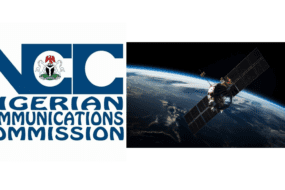South Africa’s competition watchdog has accused Google, Meta, and X of engaging in anti-competitive practices that disadvantage local media platforms. The findings, part of a recent market study, could result in hefty financial penalties for the tech giants.
Google Under Fire for Algorithm Bias
The preliminary report, released on Monday, claims that Google’s search algorithm favours international news outlets over South African media. This alleged bias, according to the watchdog, has significantly weakened the country’s media landscape over the past 14 years.
“This inequity has materially contributed to the erosion of the media in South Africa over the past 14 years and will continue to do so unless remedied,” stated the report.
To rectify the situation, the Commission has proposed that Google compensate South African media houses with annual payments ranging between 300 million and 500 million rand ($16.4 million – $27.3 million) for at least three years. Additionally, the search giant is expected to adjust its algorithm to ensure fairer visibility for local publishers.
Google Responds to Allegations
Google has denied any wrongdoing, insisting that it does not extract disproportionate value from publishers. The company argues that its services, such as Google Search and News, provided South African publishers with an estimated 350 million rand in referral traffic value in 2023, while it earned less than 19 million rand from advertisements placed alongside news queries.
“In 2023, our products like Google Search and News generated an estimated 350 million rand in referral traffic value for South African publishers while we earned less than 19 million rand from ads displayed next to news queries,” Google stated, adding that it will review the watchdog’s findings carefully.
Meta and X Also in the Spotlight
The report also targets Meta and X, accusing them of limiting the reach of South African news media posts by deprioritising content with links in their algorithms. The Commission has instructed both companies to restore referral traffic and ensure better visibility for local news outlets.
Should these companies fail to comply with the recommended changes within six months of the final report’s release, the government may impose a 5–10% digital advertising tax on their South African operations.
Final Decision Expected Soon
The final report is set to be released later this year, with all parties given until April 7 to present supporting documentation. The outcome could set a significant precedent for how global tech companies operate in South Africa’s digital media landscape.







2 replies on “Tech Giants Face Sanctions Over Alleged Unfair Practices in South Africa”
[…] tech giant designed this challenge to suit a wide range of participants. Whether you’re a tech expert, […]
[…] is pushing to reset Intel’s direction. The former Cadence Design Systems leader believes the tech giant needs a bold restart. Intel has struggled in recent years, falling behind competitors like Nvidia […]